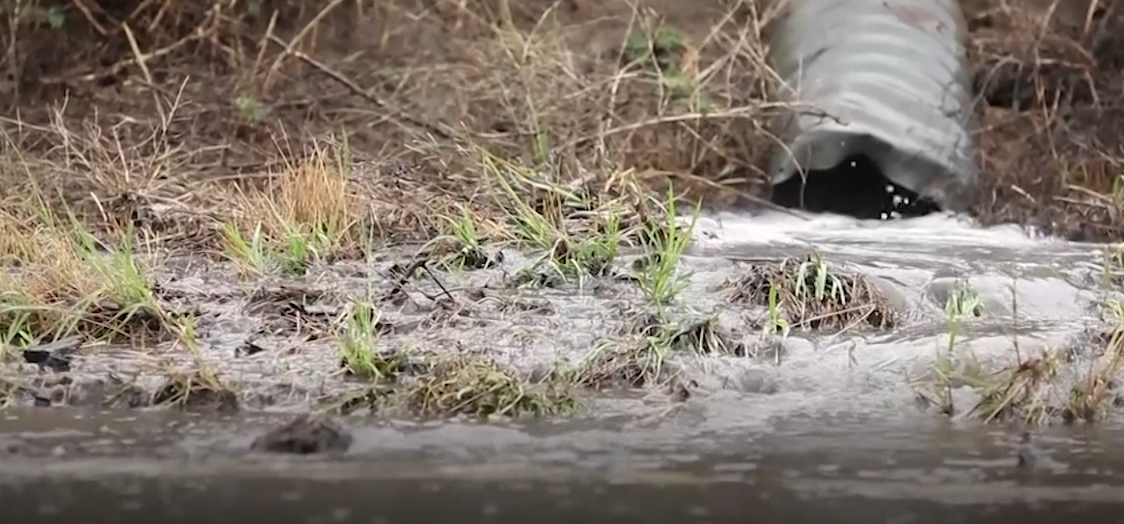JENKINTOWN, Pa. (WLVT) - Montgomery County has been growing for decades, from 625,000 people in 1970 to 826,000 people in 2017, according to the U.S. Census Bureau.
As more people move in and more land is developed, water management has become a more pressing issue, specifically stormwater management.
“Newer development has a lot more requirements to manage stormwater more responsibly,” said Jody Holton, executive director of the Montgomery County Planning Commission. “We are dealing with a lot of built-out communities that had been developed before those requirements were put in place.”
The Tookany/Tacony-Frankford Watershed Partnership, or TTF, recently held a Clean Creeks, Healthy Neighborhoods Forum at the Basilian Spirituality Center in Jenkintown. Stakeholders including local leaders, businesses, residents and students met to discuss the enormous challenge of stormwater management. Organizers said several strong storms this summer highlighted a growing problem in local water systems: runoff pollution.
“Our focus upstream is on stormwater runoff. That’s the biggest source of pollution for these creeks,” said Julie Slavet, executive director of the Tookany/Tacony-Frankford Watershed Partnership.
When large amounts of water run through a field that contains fertilizer or pesticides, or a street where substances like engine oil or laundry detergent have been spilled, the water carries those chemicals into nearby creeks.
The 30-sqaure-mile Jenkintown Creek watershed is highly impaired, meaning it contains a high level of pollution, Slavet said.
The problem is county-wide.
“About half of the creeks in Montgomery County are impaired in some way,” Holton said. “They have some pollutant in them. A lot of them are related to stormwater and the pollutants that just flow over the ground into the creeks.”
Polluted creeks can negatively affect local habitats. TTF has been working on solutions to reduce stormwater runoff, including several projects at the Basilian Spirituality Center. One was a rain garden designed to soak up stormwater runoff with native plants.
“What runoffs come off of is parking lots and grass and roofs,” Slavet said. “This rain garden is planted with native plants and what it does is it slows down and filters the runoff that then will go into the creek that’s just down the stream from there.”
Tree buffers can also help prevent erosion.
“There was a lot of water, a lot of drainage happening, and trees were being uprooted,” said Sister Dorothy Ann Busowski, provincial superior for the Order of Saint Basil the Great. “They came in and they planted 90 trees.”
Since TTF began focusing on stormwater management in 2013, they’ve raised about $750,000 through grants and donations to fund these kinds of projects. Since 2014, a program called Streamkeepers has been monitoring how intense storms affect flooding and pollution levels.
“Our job is to come once a month to our stream and we do certain measurements to see how things are,” said streamkeeper Roberta Brunner.
Brunner checks around the source of Jenkintown Creek, near Abington Friends School.
“If everybody goes at least once a month, we find out if there’s a problem before it gets too big, and we can report it and somebody can come and check on it,” she said.
By monitoring values like water temperature, color and algal content, the partnership hopes to be able to measure how well their projects are helping various parts of the Jenkintown Creek.
And they’re hoping to involve the next generation of conservationists. Five students enrolled in a “Natural Resources Economics” course at Arcadia University attended the forum.
“We came here in hopes to find different solutions that would improve our creek on campus,” said Arcadia University senior Jason Rivera. “We’re trying to just improve it. To get different ideas from different experts would be a nice way to combine all the different solutions to figure out the best way to do it.”
Montgomery County expects lots more future development. So as part of their long-term plan, Montco 2040: A Shared Vision, the county has set up a grant program to help municipalities fund projects like riparian habitats improvements, stormwater basins, and retention ponds. Officials said they hope that will help the county develop more sustainably.




